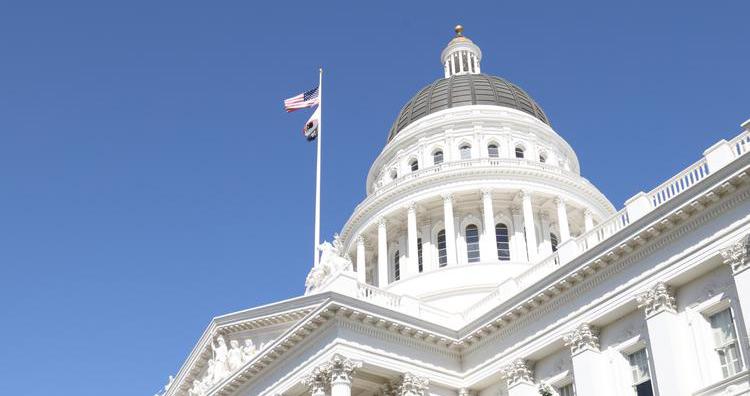As 2024 moves along, CalCPA’s impact was evident throughout the legislative process as we worked to represent the interests of our members and California’s CPAs on key issues. From setting the slate in January to weighing in with key insights, and from ramping up efforts to stall bad policies to shepherding key policy goals over the finish line, here are some of the highlights of CalCPA’s actions.
Re-Upping the CBA
This year, the California Board of Accountancy was under legislative review to assess its effectiveness in regulating CPAs and protecting the public. CalCPA was actively involved in ensuring a smooth process that addressed legislative questions with the proper context and background.
We also worked to ensure that necessary changes and updates to the Accountancy Act appropriately balanced solid oversight with the practical realities of CPA work. The passage of AB 3251 reinforces the importance of the CBA’s role and reflects CalCPA’s ongoing support for an effective and efficient regulatory framework.
Supporting the CPA Pipeline
A top priority for CalCPA this year has been addressing challenges that stem from a CPA pipeline shortage. To that end, CalCPA started working with stakeholders to explore changes to licensing requirements, both in California and nationwide, that could give individuals more flexibility as they enter the profession.
While much of this work took place behind the scenes through discussions with profession and regulatory stakeholders, several proposals are open for public comment from across the profession. CalCPA sees these efforts as essential to creating more opportunities for future CPAs to join and succeed in the field, setting the stage for continued progress next year.
Financial Literacy for High School Students
California made a big step forward with AB 2927, a new law that requires high school students to take personal finance courses to graduate. CalCPA has been a strong advocate for this change, recognizing how important it is for young people to gain essential money management skills early.
The goal is to give students a strong foundation in personal finance, setting them up for informed financial decisions later in life. Further, this opens the door for CalCPA and the profession to work more closely with schools and students who are exploring career paths. CalCPA’s advocacy work to help move this from concept to reality was instrumental in getting legislation signed.
Opposing Overly Complex Tax Policies
In keeping with its commitment to fair and manageable tax policies, CalCPA took a stand against two untenable
tax proposals:
AB 259 (Wealth Tax): CalCPA worked to prevent this proposed wealth tax from becoming law, arguing it would add unnecessary complexity for taxpayers and would be nearly impossible to implement. CalCPA’s engagement with business stakeholders were key in stopping this proposal from moving forward.
Tax on Services: Another tax concept that continues to be considered was also targeted as part of a proactive effort to squash it before it could mature into a
real proposal. CalCPA has been a leading voice in a coalition that continues to reiterate the challenges a tax on services would have for taxpayers, practitioners, and the broader economy.
These are wins for Californians and businesses, as they help keep the tax system reasonable and efficient.
Refining the Pass-Through Entity Tax
CalCPA has been advocating for improvements to the Pass-Through Entity Tax (PTET) to make it easier for eligible businesses to participate. Two bills were introduced to address these issues. While they ultimately stalled in the Legislature this year, they have paved the way for efforts next year.
SB 1192: Proposed to extend the sunset date for PTET to provide more clarity despite uncertain federal rules for caps on state and local taxes.
SB 1501: Aimed to give businesses more flexibility on the June 15 PTET payment deadline.
Even though they didn’t pass, CalCPA is committed to finding practical solutions that make the PTET easier for businesses to navigate. After the November election, when we have a better sense of Congress’s makeup and priorities, we’ll be able to refine our approach to advancing these efforts next year.
Aligning with the Federal Tax Code
CalCPA has begun laying the groundwork to update California’s tax code in 2025, aiming to align it with federal tax changes that have happened since the last conformity project in 2015. This alignment will help simplify tax compliance for both taxpayers and preparers.
Although this will be a complex process, initial discussions and drafts in 2024 have set the stage for a proposal next year.
Emerging Assurance Areas
AI: With artificial intelligence rapidly evolving, CalCPA monitored SB 1047, which proposed new AI regulations, including third-party assurance, to ensure developers of AI systems were, in fact, complying with strict new regulations. Though it was vetoed, CalCPA supports finding ways to protect consumers without holding back innovation in AI technology.
Climate regs: With the passage of SB 253 and SB 261 in 2023, California is advancing climate policy by requiring companies to report their greenhouse gas emissions and obtain third-party verification to ensure accuracy. As these requirements roll out, CalCPA is actively working with regulators and stakeholders to bring the profession’s perspective into the process. Profession involvement will be key to establishing a reliable reporting and assurance system that is workable for businesses and practitioners and effectively supports California’s environmental goals.
Looking Forward: CalCPA Legislative Summit & Advocacy Day
CalCPA Legislative Summit & Advocacy Day will be held Feb. 5 in Sacramento. CPAs are invited to connect with lawmakers, discuss important issues and advocate for policies that benefit both the profession and the public. It’s a valuable opportunity to be heard and make a difference. Keep an eye out for how you can register for this event and help advance CalCPA’s advocacy work for another successful year.
Jason Fox is CalCPA’s vice president of advocacy and government affairs.


